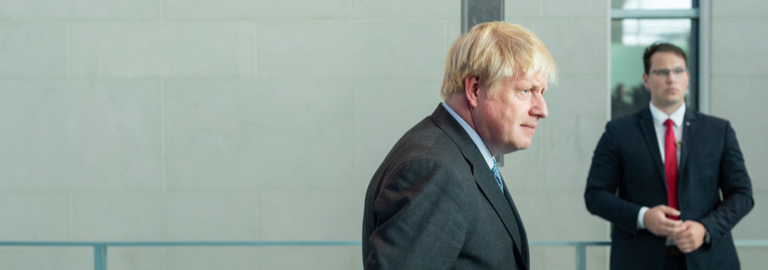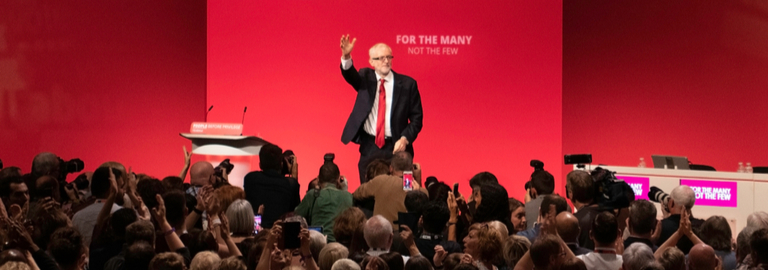
As the country holds its breath for a second general election in as many years, sectors in the UK once again find themselves in limbo. One such example is audit, and its potential reform.
2019 was a big year for the audit industry, and arguably not in a good way. Scandals spanning the last couple of years came to a head with Thomas Cook’s collapse, adding the travel firm to a list that includes BHS, Patisserie Valerie and Carillion. Each collapse made calls for audit reform louder.
The last year also saw the Brydon Review set up, a review by Sir Donald Brydon into the quality and effectiveness of audit in the UK. He is expected to present his findings next year, but the exact time-frame is currently unknown.
In December 2018, the Competition and Markets Authority proposed a shake-up of the Big Four and published its final report in April making four recommendations: Audit committee scrutiny, mandatory joint audit, an operational split, and a five-year review of progress by the regulator.
Many expected the Brydon Review to be released at the end of 2019. While Sir Brydon himself has shown sympathy towards auditors, it is currently unclear which way the report will fall when it is released.
Sir Donald Brydon: “I’m a little troubled by the current mood that reaches for a shotgun aimed at auditors every time there’s a corporate problem. Audit needs to be an attractive profession that attracts the brightest and the best who can have confidence that a good piece of professional work will not be misdescribed in times of stress.”
[Brydon is] “seeking for audit to become more informative and not just a compliance-checking function, and one which helps to maintain and grow trust in business as a whole.”
The result of the election is now the next determining factor for the future of audit in the UK, but what have the political parties said on the matter?
Conservative Party
While the Conservative Party manifesto does not explicitly mention any of the recommendations made by the CMA, it does commit to reform the ‘audit regime’. On page 35 under the subheading ‘Building a fairer taxation system’, the manifesto says: “We are also strengthening the UK’s corporate governance regime, and will reform insolvency rules and the audit regime so that customers and suppliers – and UK taxpayers – are better protected when firms like Thomas Cook go into administration. We will also carefully study the results of the ongoing investigation into its collapse. We will improve incentives to attack the problem of excessive executive pay and rewards for failure.”
However, in November Sky News reported that private discussions amongst the Department for Business, Energy and Industrial Strategy (BEIS) have suggested that the department has succumbed to backlash from accountants and corporate Britain to scrap the proposal of introducing mandatory joint audit.
According to Sky News, one senior figure said: “Joint audits are dead in the water as far as the UK is concerned.”
Resources & Whitepapers

While the manifesto suggests the party wants to reform Audit, if these reports are to be believed, it does not look like a Conservative Government would go to the lengths suggested by the CMA.
On 5 November 2019, The Secretary of State for Business, Energy and Industrial Strategy Andrea Leadsom, wrote in a statement: “Future reform will cover not just the function of the regulator, but also the purpose and function of the audit market, and audit itself. I intend to bring forward an ambitious and coherent programme of change that drives up quality, resilience and choice.”
Labour Party
The Labour Party manifesto is more explicit about how it wishes to reform the audit market and commits to implementing joint audit. It says: “Audits are vital to corporate accountability, but the auditing industry is dominated by a few players riddled with conflicts of interest. Labour will separate audit and accounting activities in major firms and impose more robust rules on auditors.”
This isn’t a surprise, as the Labour Party has been an outspoken critic and driving force behind the push for audit reform. Labour Party MP Rachel Reeves has been a strong advocate for splitting Big Four operations and breaking up the Big Four.
On 5 March 2019, Rebecca Long Bailey, Shadow Business Secretary, backed two reports, Reforming the Auditing Industry and Regulatory Architecture to enhance Democracy and Business Accountability, saying: “Our regulatory system is simply not fit for purpose and the Tories have shown no interest in tackling the accounting and auditing shortcomings which led to the catastrophic collapse of Carillion.
“These reports highlight the scale of the problems facing the auditing and regulatory systems, Labour will look closely at their recommendations.”

The official statement on the Party’s website read: “Under Labour, the big six accountancy and auditing firms will not be allowed to continue to act like a cartel, driving down standards, damaging the wider economy, and our business community will look closely at all of the report’s recommendations.”
Shadow Chancellor of the Exchequer John McDonnell also backed the reports, saying: “These reports are certainly a damning description of the current auditing and regulatory regime, which has given us corporate scandal after corporate scandal.
“Labour will be examining them carefully and will lay out our proposals for shaking up the whole system.”
While the Conservative Party has been less clear about what its position of audit reform is, and whether it will go through with any suggestions if elected, it is quite clear where the Labour Party stands.
Liberal Democrats
Unlike the other two major parties, the Liberal Democrats make no mention of audit or audit reform in their manifesto. Instead, it talks in general terms about improving businesses operating in the UK to be more ethical and UK-centric.
The Liberal Democrat manifesto says: “The system is not working as it should: unscrupulous employers are still able to exploit their workforce and even when businesses fail, those at the top often receive huge rewards while staff lose their jobs. And we do not yet have a framework that sufficiently rewards businesses for environmentally sustainable behaviour – or penalises them for environmentally damaging activities.”
The manifesto then proceeds to list their goals for business and industry should they be elected, but it does not mention audit reform, or any suggestions made by the CMA.
The mention of rewarding businesses for environmentally sustainable behaviour suggests that they would favour a form of audit that not only looks at finance but would audit a firm’s environmental impact.
The party also speaks in favour of entrepreneurs and small businesses, which could suggest the party would not act too favourable towards the likes of the Big Four, and could take suggestions from the CMA and the Brydon Review, once it’s published, into consideration.

Leave a Reply